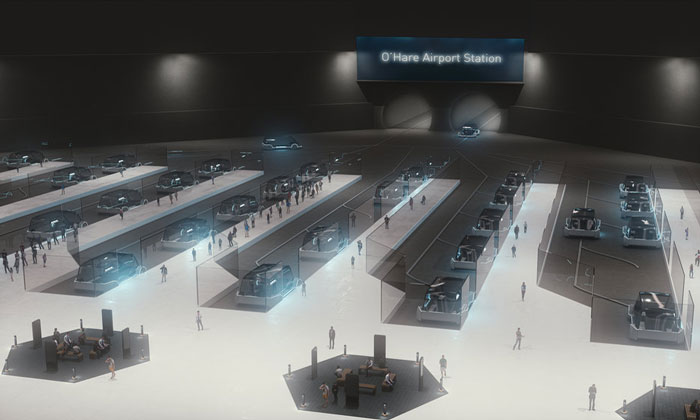Elon Musk’s Boring Company wins bid for Chicago O’Hare Express Loop
- Like
- Digg
- Del
- Tumblr
- VKontakte
- Buffer
- Love This
- Odnoklassniki
- Meneame
- Blogger
- Amazon
- Yahoo Mail
- Gmail
- AOL
- Newsvine
- HackerNews
- Evernote
- MySpace
- Mail.ru
- Viadeo
- Line
- Comments
- Yummly
- SMS
- Viber
- Telegram
- Subscribe
- Skype
- Facebook Messenger
- Kakao
- LiveJournal
- Yammer
- Edgar
- Fintel
- Mix
- Instapaper
- Copy Link
Posted: 15 June 2018 | International Airport Review | No comments yet
Known for daring and high-tech projects, The Boring Company’s O’Hare Express will see passengers shuttled between Chicago’s Central Business District and the airport on electric skates travelling between 125 and 150 miles per hour.


LEGACY OF INNOVATION: A trip on the skates will cost less than a taxi or ride-sharing service, as was a prerequisite of all the proposals
Elon Musk’s Boring Company has won the rights to design, build and operate a high-speed express line from downtown Chicago to O’Hare International.
The Chicago Infrastructure Trust chose the Boring Company from a shortlist of four groups, each briefed that their proposal must see travel times between the airport and a ‘downtown station’ of 20 minutes or less and with a frequency of at least one service every 15 minutes.
The Boring Company’s design boasts journey times of 12 minutes from Block 37, an unfinished underground transit station in downtown Chicago, three to four times faster than currently available transport, with a service setting off as frequently as every 30 seconds.
As the company’s name suggests, the plan involves tunnels running underneath the city for 14 miles. Instead of a train, passengers will ride in electric shuttles, called ‘skates’, which will carry between eight and 12 occupants each and travel at 125-150 miles per hour.
“Bringing Chicago’s economic engines closer together will keep the city on the cutting edge of progress, create thousands of good-paying jobs and strengthen our great city for future generations,” Chicago Mayor Rahm Emanuel said. “This transformative project will help Chicago write the next chapter in our legacy of innovation and invention.”
One of the City of Chicago’s prerequisites when it announced its request for proposals earlier this year was that the O’Hare Express service be funded solely by project-specific revenues and financed entirely by the developer. No taxpayer funding will go towards the project.
During the negotiation phase, the company will be required to further develop its plans and ensure they meet all necessary safety, construction, financing and operating requirements. The contract will also include protections to ensure taxpayers would be protected against any costs incurred by an incomplete project. The overall project costs and construction timeline will be finalised during this process.
The current daily number of air passengers travelling between O’Hare and the Chicago Central Business District is approximately 20,000 and is forecast to grow to at least 35,000 in 2045. The express service will also be a zero-emission system, replacing car traffic on a congested highway and generating a significant positive environmental impact.












